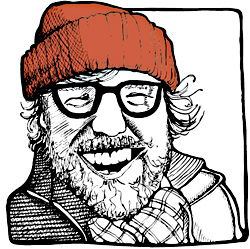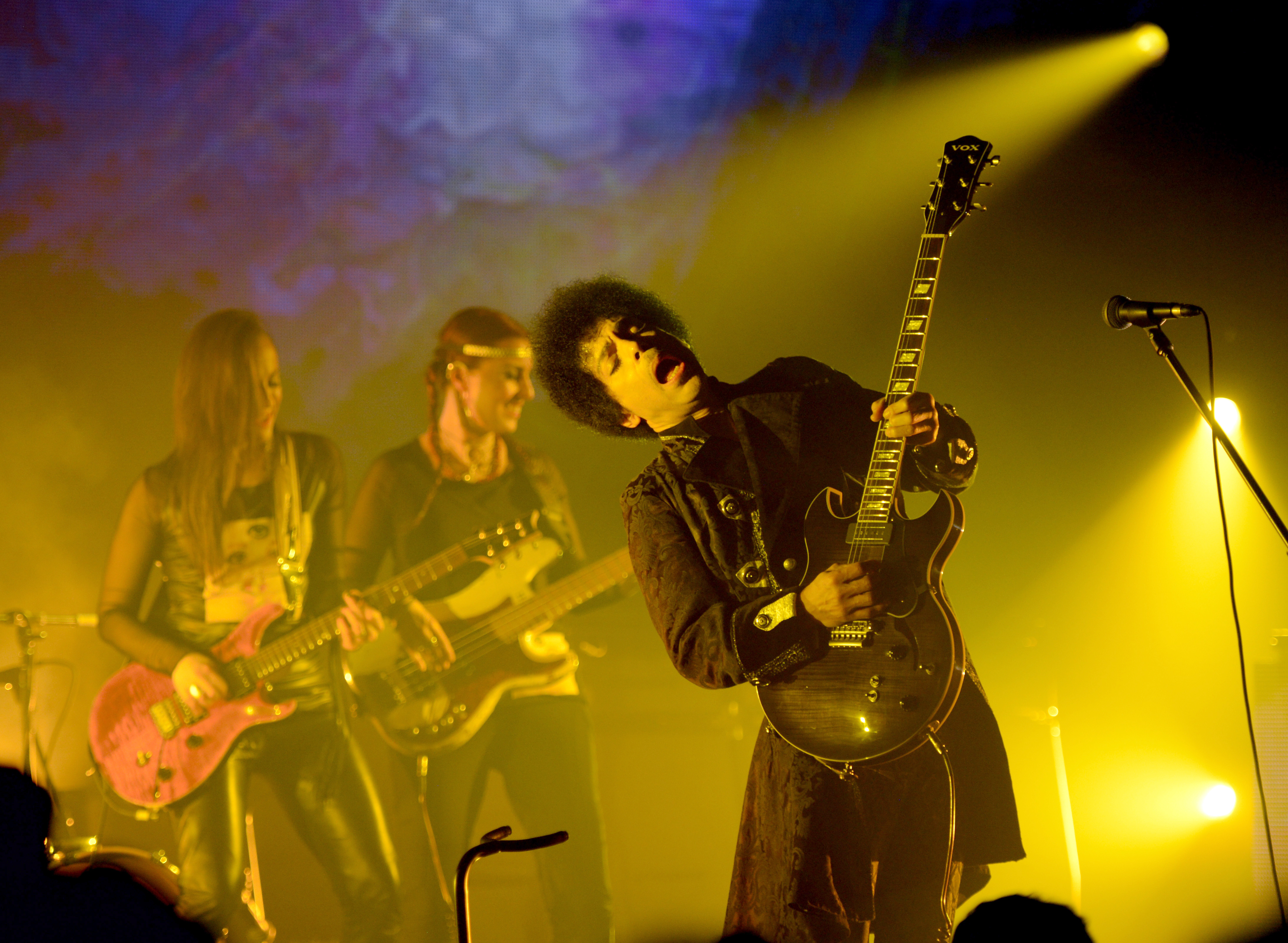I had dinner with Alan Parsons the other night. That’s right, Alan Parsons, of the Alan Parsons Project. I’m not kidding. You may know him better as the man who recorded Pink Floyd’s Dark Side of the Moon, or perhaps as the tape operator for a little album called Abbey Road. Anyway, he gave a talk at the EMP (along with Bob Ezrin, who recorded The Wall), and afterward he joined a small group of us for dinner.
You see, I’m a member of the Recording Academy, which in addition to putting on cool music programs for kids and promoting local music is the organization that puts on the Grammy Awards. Technically, I guess, I’m partly responsible for how terrible and irrelevant the Grammy Awards are, because although I’m supposed to vote on the winners, I’ve never bothered to actually figure out the ballot and choose which execrable hip-hop video deserves to be video of the year, etc. My failure to vote means that winners are all chosen by 90-year-old producers from Nashville who had one hit with Kenny Loggins back in ’78. I look at the Academy mostly as a sort of fraternal organization, like the Benevolent Order of the Dwarf Oafs, where I gather with other old, ponytailed musicians unashamedly wearing black jeans and satin jackets. Then we take turns sitting in front of a giant Kenwood stereo and listening to Billy Squier on Memorex tape.
And occasionally the Academy sponsors an event where someone famous, or great, or both, comes and gives a talk.
Ezrin and Parsons were here to talk about recording Pink Floyd, which is the music-geek equivalent of Plato and Aristotle coming to talk about those hilarious days writing down Socrates. It’s amazing to think that we’re still so close to the classic-rock era that the people responsible for those records still walk among us. The Hollies’ “Air That I Breathe”? Recorded by that guy right over there. Al Stewart’s “Year of the Cat”? Same guy: Alan Parsons. These are songs that have existed for all of my conscious life, so from my perspective they could have been recorded in 400 B.C. and all the rest of modern history was faked, like on The Truman Show. They’ve always been there, like the sun or the oceans. Yet here was the guy who made those recordings, and he’s not even that old.
In fact, he’s not that much older than me, in the grand scheme of things. I’m closer, in age and experience, to Alan Parsons than I am to Miley Cyrus or the Lonely H or half of the fans of my band. Rock music is still so young! It’s amazing. A lot of musicians my age have somewhat of an identity crisis for this reason. The giants of the art form are still walking among us, the Bob Dylans and Carole Kings, and we toil in their shadow. But we’re not young enough to be oblivious and shamelessly derivative, like everyone under 30. We’re doomed to be the also-rans of rock music by virtue of historical accident.
No matter what line of work you’re in, if you stick with it long enough, you become part of the establishment. Cutting-edge art eventually becomes conventional, and innovation morphs into accepted practice. Damien Hirst started out flinging his poo against cardboard boxes, and now his formaldehyded sea monkeys sell for 20 million pounds and hang in airports. Twenty-five years ago, Madonna was a major news story for exposing her belly button on TV, whereas a modern pop star would have to pull her labia over her head to warrant a mention on The Soup. Growing old gracefully is a challenge, especially for those of us who weren’t very graceful when we were young. I got a late start making LPs; my first record came out when I was 33. Still, it was a bit of a shock to realize that I was more comfortable chatting amiably with Alan Parsons than I would have been smoking a “jay” or doing “the frug” with most of the bands who are nominally my peers in the music world. For that reason alone, I hereby promise to make the next Long Winters record sound like a thousand weasels being shot out of a cannon.
So about a dozen of us went out to dinner, and I ended up sitting next to Mr. Parsons, who is a gruff and exceptionally tall Englishman, and we talked about music and recording. Four-fifths of new indie rock sounds exactly like the Alan Parsons Project (except with no discernible melody), but the man himself hasn’t yet experienced a massive “hipness revival,” and he and his band are doing the casino circuit. We talked about Joy Division, which he had no interest in, and indie rock, which he had never heard of. He pantomimed working the controls of the tape machine at Abbey Road while recording automatic double tracking on John Lennon’s vocals, and explained that, although the Chicago Bulls used his music as their theme, he didn’t earn royalties.
At evening’s end, he and his wife got up to leave, promising to seek out the music of the Long Winters. Earlier on I’d asked him if he ever recorded young bands, and he leaned in and said, in his gravelly British accent, “I would expect to get paid,” which was his way of saying “Fuck off.” And rightfully so. We’re not a young band anyway. Still, if he ever does hear our music, I would hope he’d recognize his influence.
Read John Roderick of the Long Winters’ musings each Tuesday on Reverb, our music blog.








